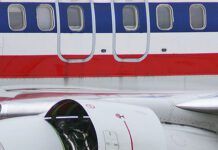![]()
LightSquared has offered to give up control of part of the frequency spectrum it owns in exchange for unconditional use of another part of the L-band frequency for its controversial proposed broadband network. In a proposal to the FCC (PDF), LightSquared says it will cede veto power over the use of half of its spectrum to government agencies that form the National Space-Based Positioning, Navigation and Timing Executive Committee if the FCC will remove conditions on its use of the other half for its nationwide 4G wholesale broadband network. The principal condition of its license with the FCC is that it prove the broadband signals don’t disrupt GPS communications. LightSquared says there are only minor and easily overcome interference issues in the lower half of the 20-Mhz swath of spectrum it owns but the GPS industry says interference is a problem across the whole sliver of spectrum. LightSquared says it will also limit the power of its signals in the lower band to further mitigate interference if the FCC goes for its deal. Meanwhile the start-up broadband provider reacted aggressively to leaked reports earlier this week that suggested GPS interference remains a major concern.
In a conference call with reporters, LightSquared claimed it was the victim of a systematic campaign of leaks of partial results from interference tests. “This most recent leak continues the pattern of premature release of data to reporters for the sole purpose of damaging LightSquared, influencing public opinion and inflaming political opposition,” the company said in a news release. “And it is a part of the multi-million public relations/lobbying campaign being coordinated by GPS manufacturers, who have a financial interest in the outcome of this debate.” LightSquared said the resulting media reports “falsely assume that LightSquared will operate at 32 times its authorized power levels.” LightSquared further said that at the frequencies and power levels proposed, the performance of none of the GPS devices tested was affected, although it did say about 4 percent of the devices did register interference. LightSquared also says the tests, which concluded Nov. 30, have not been properly analyzed by the National Telecommunications and Information Administration.


































